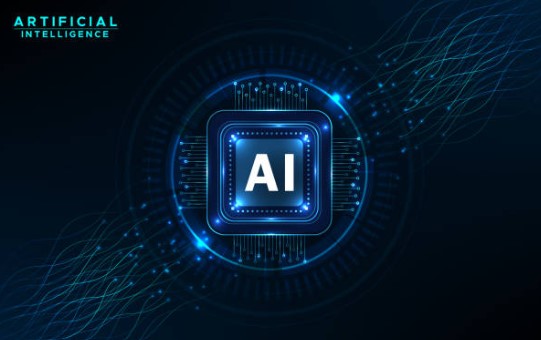Artificial Intelligence (AI)
Explore the fundamentals of artificial intelligence in our latest blog post. Discover what AI is, its applications, and its impact on various industries.
Smart Village Computer Hub
9/14/20242 min read


Exploring the World of Artificial Intelligence
Artificial Intelligence (AI) is no longer a concept confined to science fiction. It has become an integral part of our daily lives, influencing various sectors and transforming the way we interact with technology. In this blog post, we’ll delve into the fascinating world of AI, exploring its definition, applications, types, techniques, history, and future prospects.
What is Artificial Intelligence?
Artificial Intelligence refers to the simulation of human intelligence in machines that are programmed to think and learn like humans. These intelligent systems are designed to perform tasks that typically require human intelligence, such as recognizing speech, making decisions, solving problems, and understanding natural language.
Applications of AI
AI has a wide range of applications across different industries. Here are some notable examples:
Web Search Engines: AI algorithms help search engines like Google provide relevant search results.
Recommendation Systems: Platforms like YouTube, Amazon, and Netflix use AI to recommend content based on user preferences.
Virtual Assistants: AI-powered assistants like Siri, Google Assistant, and Alexa help users with tasks ranging from setting reminders to controlling smart home devices.
Autonomous Vehicles: Companies like Waymo are developing self-driving cars that rely on AI to navigate and make driving decisions.
Generative Tools: AI models like ChatGPT and AI art generators create content, from text to images, based on user inputs.
Types of AI
AI can be categorized into two main types:
Narrow AI: Also known as Weak AI, this type is designed for specific tasks, such as facial recognition or internet searches. It operates within a limited context and cannot perform tasks outside its designated function.
General AI: Also known as Strong AI, this type aims to perform any intellectual task that a human can do. General AI remains a theoretical concept and has not yet been achieved.
Techniques in AI
AI utilizes various techniques to achieve its goals. Some of the key techniques include:
Machine Learning: A subset of AI that involves training algorithms to learn from data and make predictions or decisions without being explicitly programmed.
Deep Learning: A type of machine learning that uses neural networks with many layers (hence “deep”) to analyze complex data patterns.
Neural Networks: Inspired by the human brain, these networks consist of interconnected nodes (neurons) that process information in a way similar to biological neurons.
Natural Language Processing (NLP): This technique enables machines to understand and respond to human language, making it possible for AI to interact with users through text or speech.
A Brief History of AI
The journey of AI began in 1956 when it was established as an academic discipline. Over the decades, AI has experienced cycles of optimism and disappointment, often referred to as “AI winters.” However, recent advancements, particularly in deep learning, have propelled AI to new heights, making it a crucial component of modern technology.
The Future of AI
The future of AI holds immense potential. Researchers are continuously working to enhance AI capabilities, aiming for more advanced and versatile systems. However, the development of AI also raises ethical and safety concerns that need to be addressed. Ensuring that AI is used responsibly and ethically will be crucial as we move forward.
Conclusion
Artificial Intelligence is revolutionizing the way we live and work. From virtual assistants to autonomous vehicles, AI is making our lives more convenient and efficient. As we continue to explore and develop this technology, it is essential to consider the ethical implications and strive for a future where AI benefits all of humanity.
Feel free to share your thoughts or ask any questions about AI!
Social Media
© Copyright 2024 - 2026. All rights reserved. Smart Village Computer Hub.
